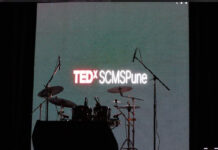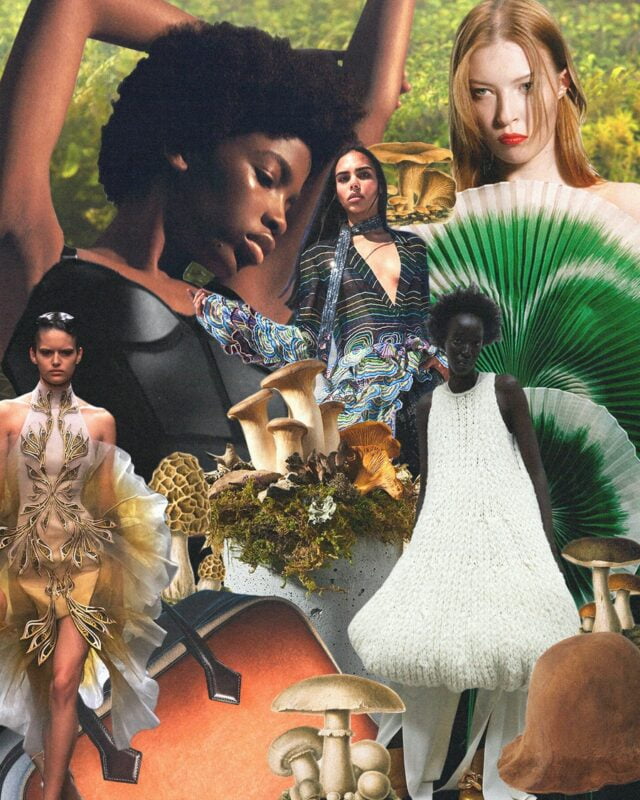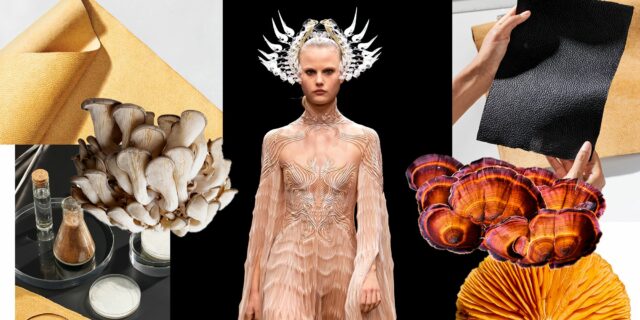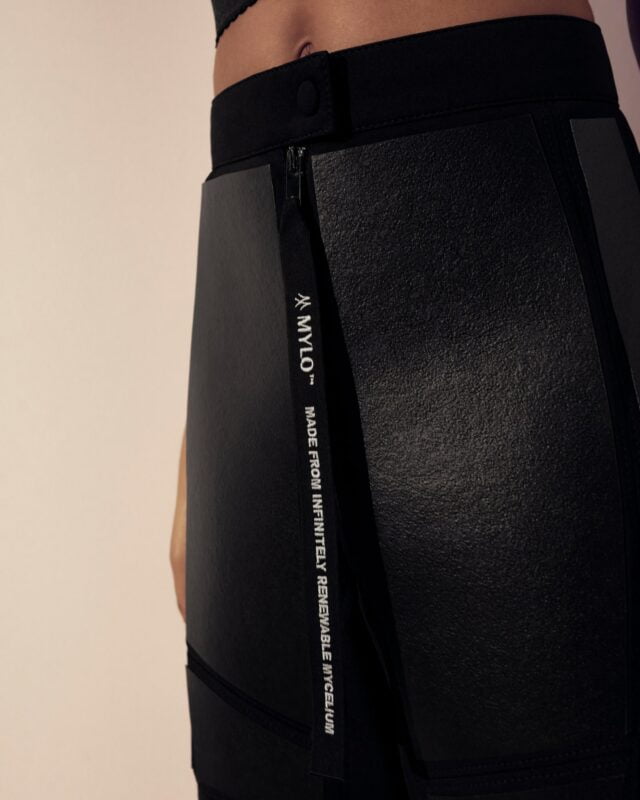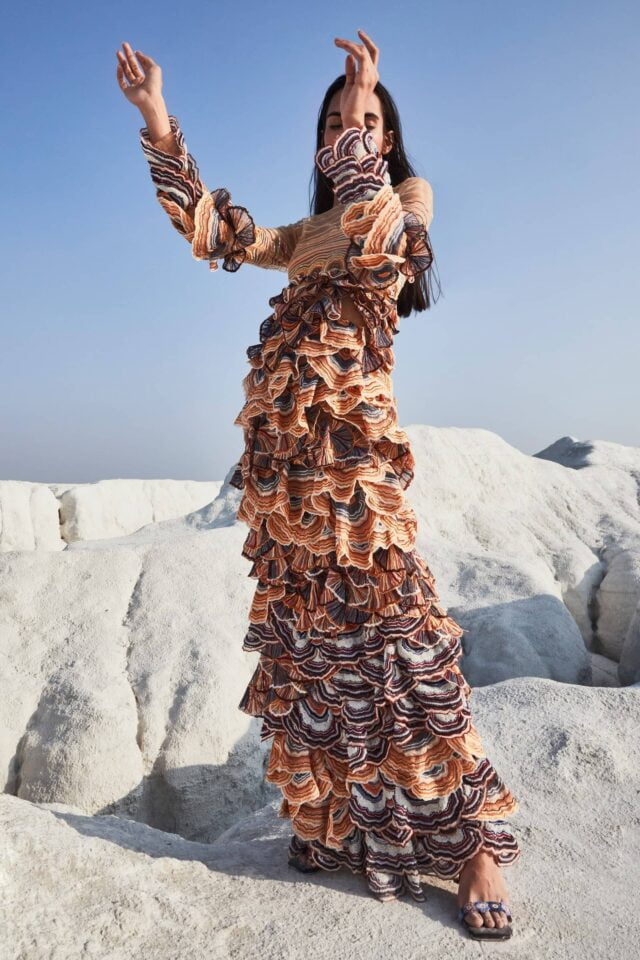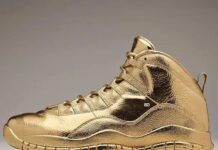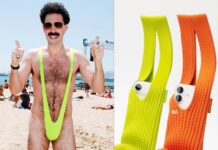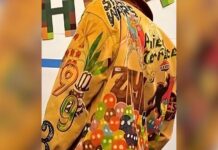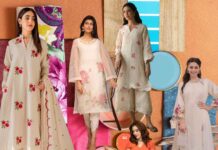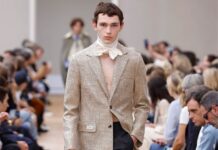The stories of Alice in Wonderland and Willy Wonka have introduced us to the magical world of mushrooms. Besides being reminiscent of our childhood memories, these fantastic fungi have a plethora of uses right from nutritional to medicinal.
Recently, it has even created a niche in the fashion industry. Let’s see how!
Before exploring the niche that this fungi has created for fashion, let us know the science behind Mylo.
What Is Mylo?
The plant-based innovation, Mylo is a material grown as a fair substitute of leather from mycelium. Mycelium is the vegetative part of a mushroom.
It is the underground network of thread-like branches growing beneath mushrooms and fungi that connect every living plant and tree, facilitating the exchange of nutrients. To obtain a leathery look and feel, it is vegetable-tanned and entirely natural and biodegradable unlike polyester-based faux leather. Mylo can grow in about two weeks, on a sheet of sawdust.
Thus, it’s carbon footprint is considered to be exceptionally smaller, particularly in comparison to resource-intensive animals that take years to raise.
What Are Its Environmental And Ethical Benefits?
The adverse environmental impact that the fashion industry has created over the years cannot be reversed. However, they can definitely be compensated for now with a completely natural and friendly alternative.
Raising animals for the sake of fashion is not only cruel and unethical but is also harmful to the environment in many ways as animal agriculture is a leading contributor to climate change.
Besides, the processing of leather often requires chemicals that are toxic to people and the planet. In fact, faux leather derived from petroleum, though animal friendly is not at all a good alternative either. Thus, in this case, it is mycelium that wins!
“Our preliminary impact assessment indicates the incredible environmental benefits of mycelium-based leather,” says Dan Widmaier, Mylo’s founder, and CEO.
“As disposable incomes rise around the globe, so will the demand for meat and leather goods. This demand can’t be met using the land and water it takes to raise cattle. We need smarter, more sustainable solutions.”
Also Read: In Pics: Here’s How The Fashion Industry Contributes To Climatic Degradation
Mycelium As A Fashion Style Statement
This new innovation has been widely adopted by sustainability-centric brands like Eden Power Corp and fashion designers like Stella McCartney who is a lifelong vegan and has lately been outspoken about the environmental damage caused by processing leather.
The latter worked with Mylo’s scientists to perfect the material’s weight, drape and texture. The process was slow at first “but became really exciting very quickly”, says McCartney.
In 2018 Mylo prototyped her Falabella bag for the “Fashioned From Nature” exhibit by the Victoria & Albert’s Museum. She also formed an association with Adidas, Lululemon, and Kering for heavy investment in Mylo’s development.
Now she’s unveiling a jet-black buster and utility pants, the industry’s first-ever Mylo garment!
On another hand, we have Eden Power Corp which has been inspired by mushrooms both from raw material and a design standpoint. Their Mycelium collection features fungi motifs in addition to graphic-free clothing in a range of mushroom-themed hues.
However, their most remarkable collection is the Amadou Hat made out of a single mushroom.
Lacrose, one of the brand founders explains,
“Very few families still do Amadou hats in Transylvania. It’s a complex and long process. They first need to forage the tinder mushroom in the wild, (the mushrooms) need to be at least two or three years old.
Then they boil it and cut it in slices following the mushroom’s natural layers using a sickle. They stretch it by hand and then shape it to the desired hat form.“
Further speaking from a designer’s standpoint, mushroom-themed outfits have been inspiring innumerable fashionistas in recent years. From Iris Van Herpen and Daniel Del Core to Rahul Mishra – everyone seems to be equally obsessed with the fashionable fungi.
Do you think fungi is the future of fashion? Will it be ever available for mass consumption? Let us know your views in the comments down below!
Image Sources: Google Images
Sources: FASHIONISTA, VOGUE +more
Find the Blogger: @ParomaDey
This post is tagged under: fashion, mushroom, fantastic fungi, Mylo, Un-leather, mycelium, Dan Widmaier, Stella McCartney, Eden Power Corp, Adidas, Lululemon, Kering, Falabella, Lacrose, Amadou Hat, Iris Van Herpen, Daniel Del Core, Rahul Mishra
Read More:
With Banana Sarees, Bamboo Jeans, Lotus Shawls, How Wearable And Pretty Is Green Fashion?



















